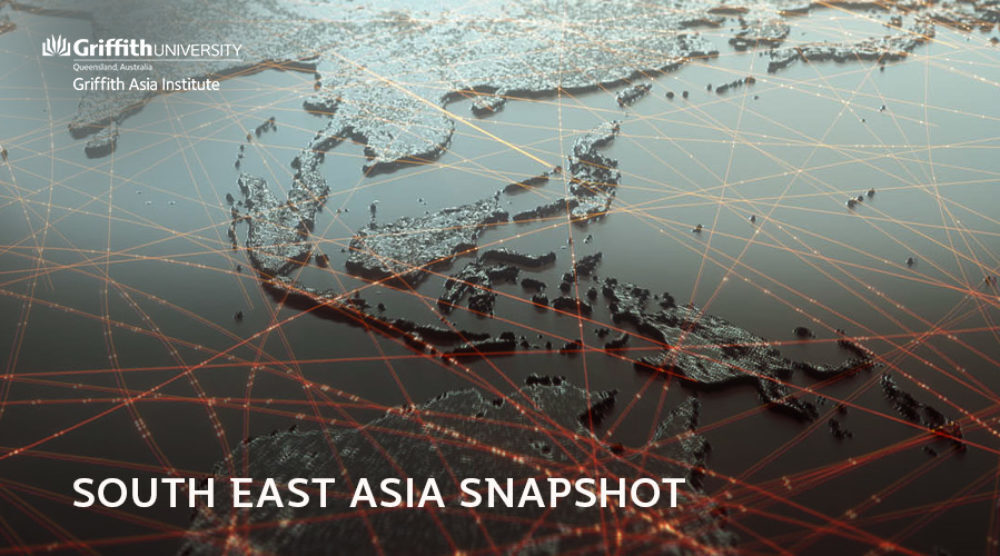Manila’s stance toward China after the Philippines election
Since the proclamation of his victory in the Philippines election in May 2022, the Philippines President-elect Marcos Jr has shown various postures toward China.
In an interview with the country’s local media on 26 May 2022, Marcos Jr stated that the Philippines would uphold the 2016 Permanent Court of Arbitration ruling over the dispute against China in the South China Sea. Where President Duterte focused on good ties with China in exchange for trade and investment, the President-elect supports the court’s ruling as a way to strengthen the Philippines’ maritime territorial rights. Crucially, Marcos Jr has taken a hardline stance, expressing that he would not allow the country’s coastal land to be exploited by China.
Tensions between the two countries intensified when the Philippines filed a complaint on 31 May 2022 over China’s unilateral declaration to ban fishing activity in the South China Sea, violating maritime territorial jurisdiction. The Chinese fishing moratorium in the South China Sea triggered Manila to summon China’s diplomat to the Philippines over the action, and a public pledge that the Philippines would assert its maritime territorial privilege.
However, Marcos Jr has also shown a willingness to upgrade the Philippines’ ties with China in on the areas of culture, education, health, and trade. Many analysts even predicted that Marcos Jr would strengthen Manila’s ties with Beijing while sustaining its defense and security ties with the United States. Moreover, some believed that relations would even deepen, extending from Duterte’s administration although questions regarding China’s assertiveness in the South China Sea persist.
Despite the President-elect’s firm stance regarding the Hague ruling, a Chinese Foreign Ministry spokesman has expressed China’s readiness to work with the Philippines under the new leadership, pushing for communication and bilateral dialogue to solve the dispute.
Many observers are keeping a close eye on how the President-elect will navigate the Philippines’ interests with China. If Marcos Jr takes a stronger approach against China in the South China Sea issue, relations between the two countries will undoubtedly turn sour, impacting the region. It remains to be seen, however, if this position is rhetoric or a political reality.
Malaysia imposes a chicken export ban to curb rising food prices
On 1 June 2022, Malaysia banned over 3.6 million chicken exports. Malaysia stated that the ban was intended to curb the domestic supply shortage and to control the market price of food in Malaysia. This chicken export ban was imposed after Indonesia lifted its oil export ban back in April 2022.
The restriction halted the export of all poultry. Chicken that was once USD 4.90 per kilo has jumped to USD 6 per kilo for the same product in the market.
The ban placed a major blow to Singapore as the country imports about one-third of their overall chicken supply from Malaysia. Some chicken sellers in Singapore believed the export restriction is catastrophic for both the suppliers and buyers with some sellers in Singapore expected to cease their business in selling chicken entirely and switch to other alternatives. Prime Minister Ismail Sabri Yaakob has said that the export ban would likely continue until the prices of domestic supplies stabilize.
All in all, the Malaysian chicken export ban will undoubtedly increase the overall chicken sale price while decreasing its supply. It is uncertain when the ban will be lifted, but the longer the ban remains in place, the heavier impact the chicken buyers will have to endure.
Myanmar junta to implement its death sentence for the first time in decades
On 4 June 2022, the Myanmar military regime carried out its judicial execution sentence on four people – the first in 32 years – including the former member of Aung San Suu Kyi’s party and a pro-democratic activist charged with terrorism by the junta.
Prominent activists such as Phyo Zeya Thaw, who was a former member of the NLD and Ko Jimmy, a pro-democratic activist, were sentenced to be hanged for their terrorism convictions while two other men – Hla Myo Aung and Aung Thura Zaw – received execution sentences for killing a junta informant. However, the specific date of the death sentence has not been revealed.
The junta’s Information Deputy Minister stressed that the executions are in accordance with the law in which both Phyo Zeya Thaw and Ko Jimmy continued contacting the NUG and other labeled “terrorist groups” resulting in the conviction of terrorism under Section 49 (a) of the Anti-Terrorism Law.
Although the executions of the pro-democratic activists have not been carried out by the junta yet, the plan draws alarming concerns from many international human rights groups as it may set a precedent for more execution sentences in the future.
Sovinda Po is a Research Assistant at the Griffith Asia Institute.








